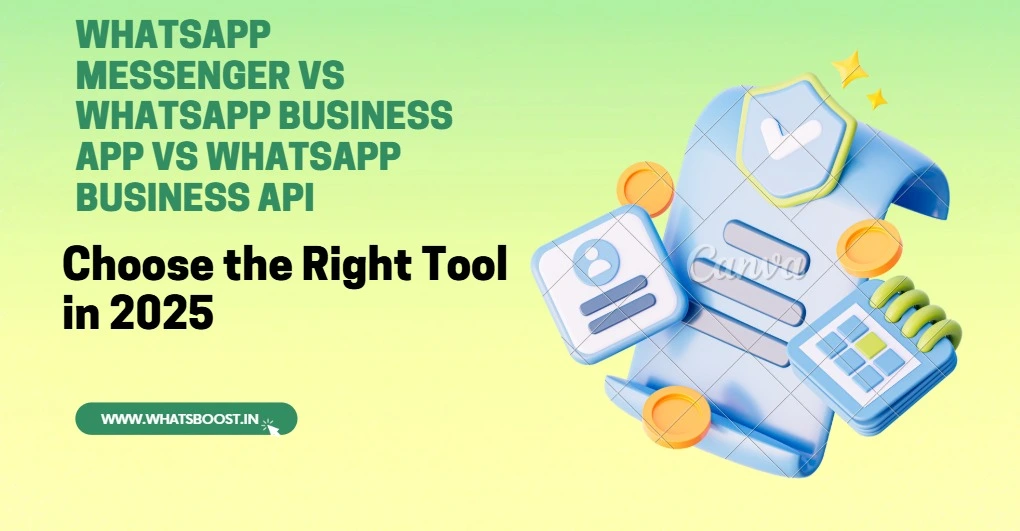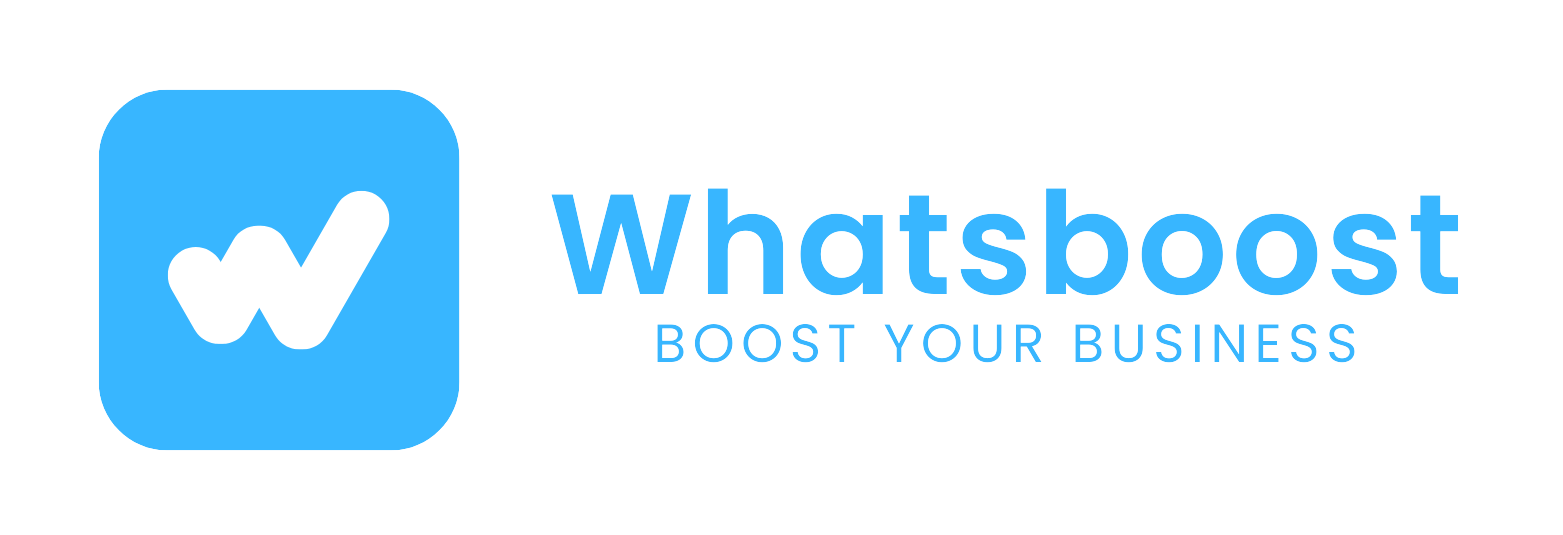
WhatsApp Messenger vs WhatsApp Business App vs WhatsApp Business API: Choose the Right Tool in 2025
Understand the key differences between WhatsApp Messenger, WhatsApp Business, and WhatsApp Business API—and see why WhatsBoost helps Indian businesses scale quickly and compliantly.
Origins of WhatsApp
Launched in 2009 by Jan Koum and Brian Acton as a simple one-to-one chat app
Grew into a leading global messaging platform widely used for personal and business communication
1. WhatsApp Messenger
Target Audience: Individuals
Use Cases:
Personal chats (one-to-one and groups)
Sharing media: photos, videos, voice notes, location, documents
Voice and video calls
Backup and restore (via Google Drive/iCloud)
Status updates
Key Features:End‑to‑end encryption
Read/delivery receipts (double/blue ticks)
Cross‑platform support (mobile, web, desktop)
Primary Role: Connecting friends, family, and informal users
2. WhatsApp Business App
Launched: 2018, designed for small businesses
Target Audience: Small business owners
Use Cases:
Customer support and inquiries
Promotional messages and offers
Professional business profile
Automated greetings and away messages
Key Features:Business profile: store address, hours, website, description
Product catalog: images, prices, descriptions, links
Labels: organize chats (e.g. New Order, Pending Payment)
Broadcast lists: send updates up to 256 contacts
Message stats: track sent, delivered, read counts
Supports up to 5 devices per account
Primary Role: Bridge between personal communication style and basic business needs
3. WhatsApp Business API
Launched: 2018 to serve medium–large businesses
Target Audience: Enterprises and growing businesses
Use Cases:
Handling high customer message volumes
Order confirmations, delivery alerts, appointment reminders
Seamless CRM and e‑commerce integration
Automated response flows via chatbots
Key Features:Scalability: no limit on devices or message counts
Integration: connects with CRM/ERP/marketing tools
Automation: chatbots, scheduled messages, routing rules
Analytics: delivery rates, engagement, response time, conversions
Partner Note:Requires official integration via a WhatsApp Business Solution Provider
Example: WhatsBoost supports API onboarding, automation, and compliance
Which One Suits You Best?
WhatsApp Messenger:
Ideal for personal use, informal business chats, or micro-entrepreneurs without automation needs.WhatsApp Business App:
Best for small businesses or freelancers looking for structure—complete with profiles, catalogs, labels, and basic automated replies.WhatsApp Business API:
Essential for growing enterprises needing automation, CRM integration, rich messaging, and analytics.
Use a provider like WhatsBoost to launch efficiently, maintain compliance, and access advanced tools like chatbots and multi‑agent inboxes.
